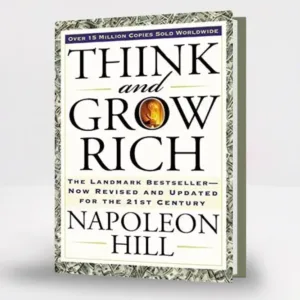No products in the cart.
Need help? Call us:
+1 1800 212 3434
Shopping cart (0)
Subtotal: $0.00
Spend $3,050.00 to get free shipping
Congratulations! You've got free shipping.
Menu
Categories
- Personal Success
- Anxiety Disorders
- U.S. History
- Magical Realism
- Faith and Belief
- Psychology
- Technology
- Poetry
- Mental Health
- Current Affairs
- Non-Fiction
- Language Arts
- Education
- Web Development
- Romance & Love Stories
- Personal Growth
- Personal Finance
- Speculative History
- Communication Skills
- Islamic Studies
- Family Saga
- Science & Technology
- Religion
- Wealth Management
- Entrepreneurship
- Personal Development
- Biographies
- Political Science
- Inspirational
- Self-Help
- Writing
- Investment Strategy
- Fantasy
- Mystery & Thrillers
- Children’s Book
- Art Instruction
- Autobiography
- Business
- Career Management
- Politics
- Spirituality
- Literature
- Comics
- Drawing & Sketching
- Political Memoir
- Ancient History
- Indian Literature
- Middle Eastern Studies
- Time Management
- Domestic Drama
- Cookbook
- Visual Arts
- Lifestyle
- Philosophy
- Drama
- Sports
- Music
- Finance
- History
- Leadership Skills
- Social Science
- Linguistics
- Political Fiction
- Leadership
- Cultural Studies
- Investment
- Motivation
- Teacher Training
- Safety
- Philosoph
- Religion & Spirituality
- Parenting
- Language Learning
- Trading
- Novel
- Teaching Methods
- Nonfiction
- Fiction
- Comparative Religion
- Family & Relationships
- Dictionaries
- Risk Management
$5.00 Original price was: $5.00.$0.99Current price is: $0.99.
First Add your favorite books calculated at checkout.
The Immortal Life of Henrietta Lacks
Author:
Rebecca Skloot’s The Immortal Life of Henrietta Lacks is a compelling blend of scientific discovery and personal history. It chronicles the life of Henrietta Lacks, whose cells were crucial to countless medical advancements yet whose own story remained largely unknown. The book explores the ethical implications of her cell’s use, the impact on her family, and the broader issues of race and medical ethics. Skloot’s investigative narrative sheds light on an important, often overlooked chapter in medical history, offering a moving and insightful portrayal of Henrietta Lacks and her enduring legacy in science.
9 people are viewing this product right now
Tags: Biography, History, Medicine, Nonfiction, Science
Categories: Biographies
Have any Questions?
Feel free to Get in touch
Print Length
283
Format
Rebecca Skloot’s The Immortal Life of Henrietta Lacks presents the extraordinary story of Henrietta Lacks, a woman whose cancer cells were harvested without her consent and used extensively in scientific research. The book highlights the ethical and racial issues associated with the use of her cells, which became one of the first and most valuable human cell lines. Skloot delves into Henrietta’s personal life, the development of HeLa cells, and the impact on her family. Through meticulous research and interviews, the book addresses broader themes of medical ethics, racial discrimination, and the intersection of science and human rights.
- The Discovery of HeLa Cells: Henrietta Lacks’ cells were the first to be successfully cultured and replicated indefinitely, leading to numerous medical advances.
- Ethical Issues: The book raises important questions about consent and the use of human tissue in research, especially given the lack of consent in Henrietta’s case.
- Impact on Science: HeLa cells have been crucial in developing vaccines, cancer treatments, and numerous other scientific advancements.
- Personal and Family Story: The book explores Henrietta’s life, the effects of her cells on her family, and the struggle to come to terms with her legacy.
- Racial and Social Implications: It addresses the racial dynamics and exploitation faced by Henrietta and her family, reflecting broader issues in the medical field.
- “When I first learned about Henrietta Lacks, I was struck by the contrast between her life and the life of her cells.”
- This quote highlights the disparity between Henrietta Lacks' personal life and the significant impact her cells had on medical science.
- “The cells had been taken without her knowledge, and her family had never been told. The cells were used to make breakthroughs in medical science, but Henrietta Lacks and her family received no recognition or compensation.”
- Skloot underscores the ethical issues surrounding the use of Henrietta Lacks' cells and the lack of acknowledgment or benefit to her and her family.
- “Science is a shared endeavor, but the personal stories of the people involved are often left out of the equation.”
- This quote reflects on how scientific progress can overshadow the personal narratives of individuals involved.
- “Henrietta Lacks’ cells were the first human cells to grow and divide outside the body, and they were instrumental in the development of the polio vaccine, cancer research, and much more.”
- The significance of Henrietta Lacks' cells in medical research is emphasized here.
- “Her story is a reminder of the human side of science and the ethical complexities of medical research.”
- Skloot reminds readers of the human and ethical dimensions of scientific progress.
- Who was Henrietta Lacks, and how did her cells contribute to major medical advancements?
- The book explores Henrietta Lacks' life and the profound impact her cells had on scientific research.
- What ethical issues arise from the use of Henrietta Lacks’ cells in research without her consent?
- Skloot examines the ethical implications of taking and using Henrietta Lacks’ cells without her knowledge.
- How did the discovery of the HeLa cells influence the field of medical research and science?
- The book details the significance of HeLa cells in advancing medical research and their role in various scientific breakthroughs.
- What was the impact of Henrietta Lacks' cells on her family, and how did they come to learn about her legacy?
- Skloot discusses the effects on Lacks' family and their journey to understand her contribution to science.
- How does the book address issues of race, consent, and ethics in the context of medical research?
- The book provides a critical look at the intersection of race, ethical practices, and medical research.
Be the first to review “The Immortal Life of Henrietta Lacks” Cancel reply
Related products
Sale!
Think and Grow Rich
Sale!
The Power of Now
You may add any content here from XStore Control Panel->Sales booster->Request a quote->Ask a question notification
At sem a enim eu vulputate nullam convallis Iaculis vitae odio faucibus adipiscing urna.









Reviews
There are no reviews yet.